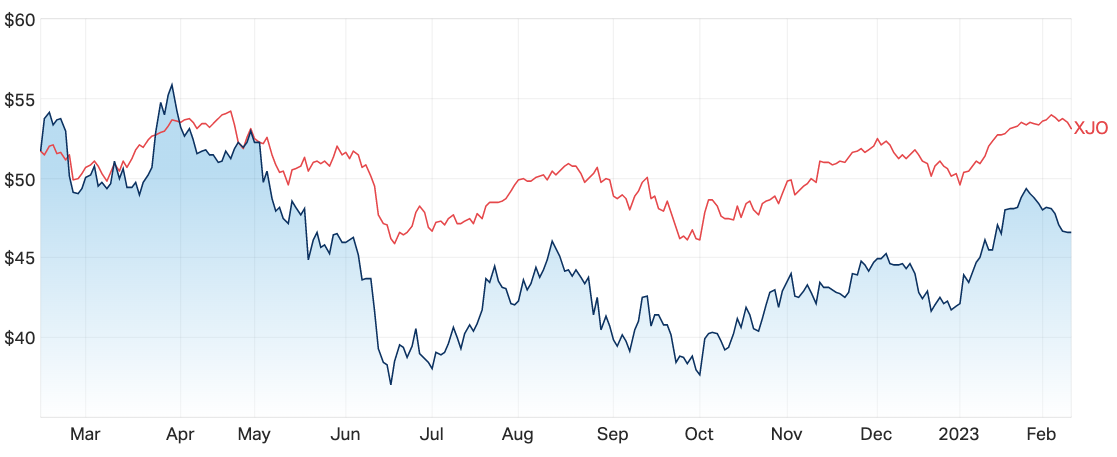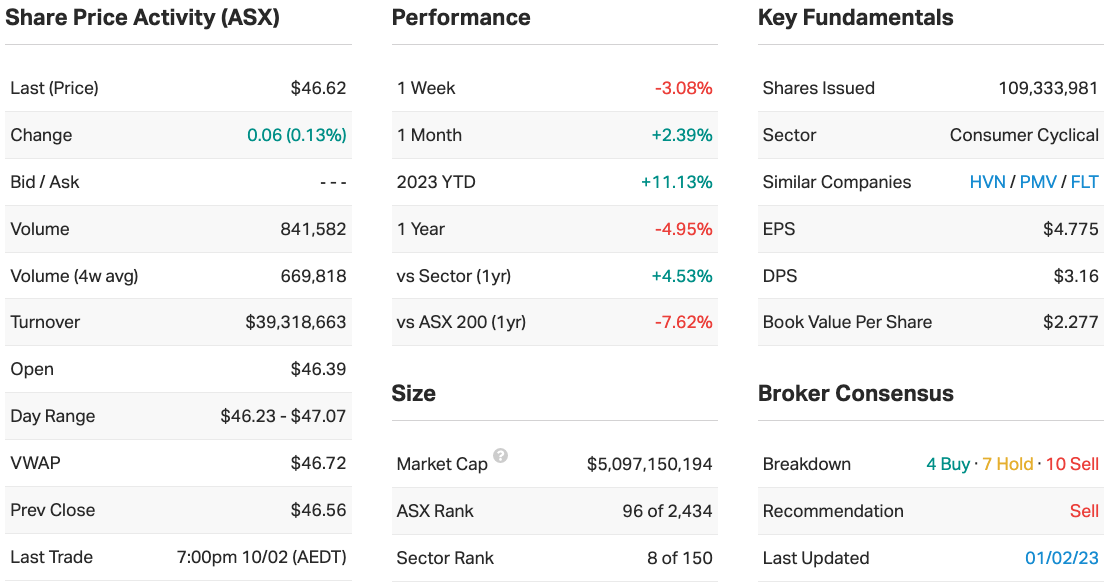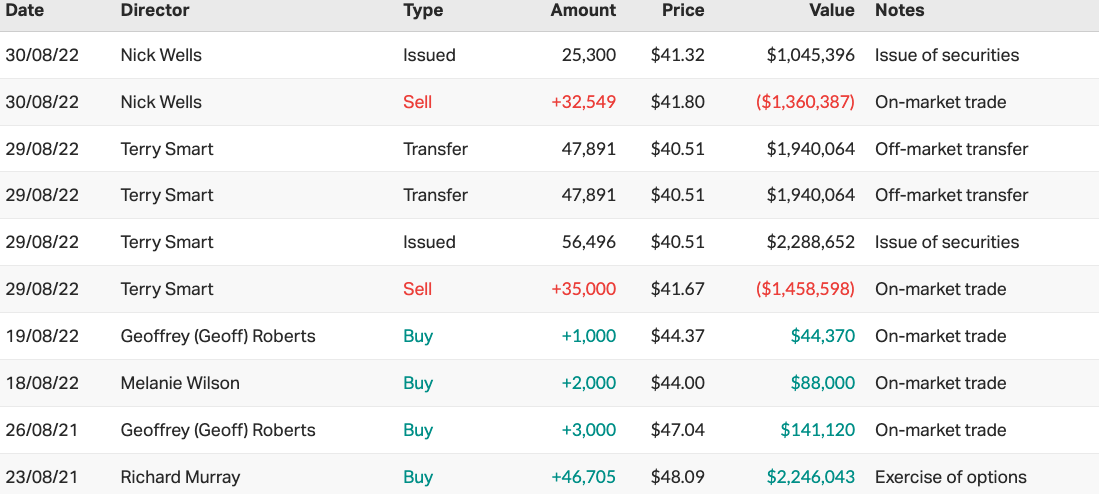JB Hi-Fi could buck the broader retail trend in a tough year ahead
There are good reasons to believe JB Hi-Fi (ASX: JBH) will buck the trend in what will almost certainly be a tough year for the consumer discretionary sector. That’s according to Hugh Dive of Atlas Funds Management.
JBH is one of Australia’s top 10 retailers in terms of market cap. And like many of its competitors, including Harvey Norman (ASX: HVN), the company was a beneficiary of Australia’s COVID lockdowns – particularly its online retail channel.
But the narrative has now moved beyond the pandemic. The reopening is well advanced and inflation has also started to hit Australians in their hip pockets. That’s why many are anticipating a sales slowdown from the retailer – and have been for a while, says Dive, pointing to the high comparable figures from FY2020 through to FY2022.
“But that hasn’t really happened,” he says.
“Sales are sitting at record levels and that can’t go on forever. But they won’t come off as much as many people think.”
Key reasons for that include the following attributes of JB Hi-Fi:
- low cost of doing business
- low debt levels, with around $390 million in net cash, and
- a history of pivoting away from declining categories.
There’s also a broad view that the full effect of the Reserve Bank of Australia’s tighter monetary policy since last May isn’t yet being felt by consumers. But as this happens, Dive suggests bigger ticket discretionary purchases will be crimped further.
“They’ll be getting hit really hard. But as JB Hi-Fi comes out with a new electrical good, that may be a bit of cheap luxury instead of that trip to Bali,” he says.
In the following interview, Dive talks me through the company's half-yearly result - which follows hot on the heels of JB Hi-Fi's mid-January announcement of record first-half 2023 sales.

JB Hi-Fi 1H 2023 key results
- Net profit after tax of $329 million, up 14.6% on the same period a year earlier.
- EBIT was up 14% to $479.2 million.
- Total sales increased 8.6% to $5.28 billion
- Earnings per share up 20.4% to 301.8 cents
- Interim dividend up 20.9% to 197 cents a share
Key company data for JB Hi-Fi

JB Hi-Fi placed in the top 10 for the effectiveness of CFO (9), Earnings Quality (8), and Investment Desirability (6), according to MarketMeter. For more information on MarketMeter, please click here.
Note: This interview took place on Monday 13 February 2023. JBH is a holding in the Atlas Funds Management portfolio.
What were the key takeaways from the JBH result? What surprised you the most?
There were few surprises, given management pre-released their numbers in January, so we had a pretty good idea of what it would look like.
Looking at the numbers, profits were up 15% but dividends and earnings per share were up 20%. That’s the impact of having fewer shares on issue, via the buyback from last year. So, the divisor for profits has shrunk.
Online sales of 15% has probably come off a bit, that’s probably to be expected with the ending of lockdowns. But the top line is fine.
What was the market’s reaction to this result? Was this an overreaction, underplayed, or appropriate?
JBH’s share price was down around 3% by midday on the day of the result.
Everyone’s looking at management’s outlook statement because we already knew what the profit and revenue figures were going to be. January has been pretty good, up 2.5%. January 22 was a record and we're still a long way above the pre-COVID, January 2020 numbers
Would you buy, hold, or sell JBH on the back of these results?
Rating: Hold
We own this in the portfolio, and I’m pretty happy to still hold this stock.
We don't own JBH for that one-off COVID hit, though it's done very well out of that, paying off $350 million worth of debt, so is in a net cash position of around $390 million. I like that in this environment, where there will be no nasty conversations with their bank about raising their debt interest rate. That also gives management a lot of flexibility.
It's a very efficient retailer, so it will dominate and survive over time. They’re much more efficient than their biggest competitor, Harvey Norman.
What’s your outlook on JBH and consumer discretionary more broadly across FY23?
You want to own the best in class and the cheapest in terms of the cost of doing business - the most efficient retailer and the one with no debt.
The consumer discretionary sector is going to do it relatively tough as mortgage rates go up and discretionary purchases get derailed. So, the more highly indebted retailers, with less balanced business models will still be under pressure. But none of that applies to JB Hi-Fi, which has a competitive advantage over the others.
Its key competitor, Harvey Norman, has quite a lot of debt including off-balance sheet debt that it squirrels away with franchisees, which contrasts with JBH's net cash position.
There are going to be some bumpy times. We anticipate sales are coming off. But over the years, JBH has been very good at pivoting away from declining categories and maintaining sales by finding new things
I wouldn't want to own the whole sector, with some pain coming through. And that's the only stock we own in the sector.
Are there any risks to this company and its sector that investors should be aware of given the current market environment?
There's the risk that sales come off, and we're modelling that they will. They're sitting at record levels and that can't go on forever. But they won't come off as much as many people think.
If you've got the lowest costs in the sector and you've got no debt, you get to live to fight another day. JBH has a combination of bulk buying, store layouts, and the way they incentivise their staff in terms of sales.
Harvey Norman has much bigger stores with furniture sales and the “franchisee” approach, which doesn’t have quite the same level of corporate control. And then if you take the next step down, the costs are much higher for the likes of Bing Lee, so JB Hi-Fi can compete pretty hard.
From 1-5, where 1 is cheap and 5 is expensive, how much value are you seeing in the market right now? Are you excited or are you cautious about the market in general?
Rating: 2 to 3
Looking at the wider ASX, Australia looks to be a good place to be invested. The ASX has underperformed for 10 to 15 years, and it's viewed as boring and old school in comparison to the FAANGs and those very exciting companies, with our market dominated by resources, banks and a lot of domestic oligopolies that don't have a lot of links to global growth.
But in a global market where we're facing Europe potentially going into a recession along with the US, having those cosy domestic oligopolies and things that aren't so linked to global growth is probably a good place to be.
In a market where rates are rising, it's pretty attractive to be investing in companies paying dividends today versus those promising profits in 10 years time. The net present value on those 10-year profits may end up being low compared to the cold hard cash in the hand today. So, I'm pretty happy to be invested in Australia.
10 most recent director transactions

Catch all of our February 2023 Reporting Season coverage
The Livewire Team is working with our contributors to provide coverage of a selection of stocks this reporting season. You can access all of our reporting season content by clicking here.
3 topics
2 stocks mentioned
1 contributor mentioned

